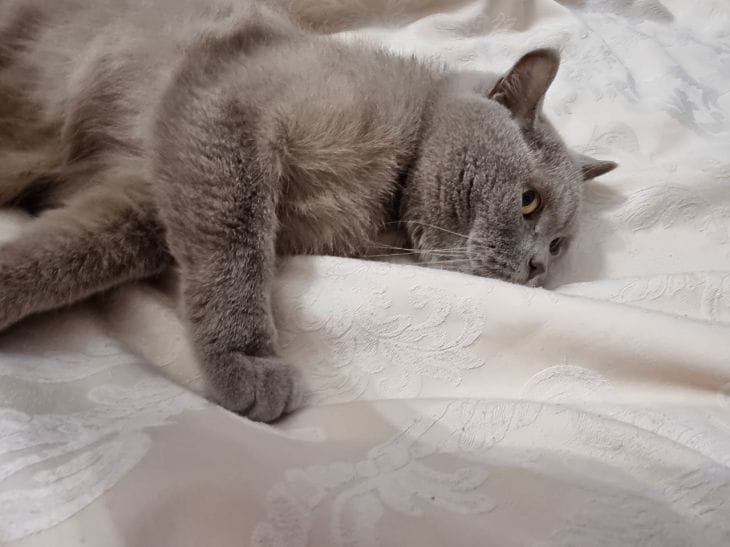Why does a cat cover its face with its paw when it sleeps: unexpected secrets of the cat world
Every pet owner has seen the funny picture of a cat covering its face with a soft paw while sleeping.
This behavior arouses considerable interest and many questions among inquisitive owners of furry pets.
Ancestral instincts and defense mechanisms
Cat habits have their roots in the distant past, when their wild ancestors survived in harsh natural conditions.
Covering the muzzle with a paw during sleep is an ancient defense mechanism inherited by modern domestic pets from their wild relatives.
This behavioral feature is associated with the animal’s innate desire to protect the most vulnerable parts of the body.

The muzzle and nose are sensitive areas that need to be protected from possible external threats. When a cat sleeps, it becomes most vulnerable, so the instinct for self-preservation tells it to cover its important senses.
Temperature control
In addition to protection, such behavior serves as a thermoregulatory function. The paw helps to retain heat and create comfortable conditions for rest.
This technique is especially often used by representatives of breeds with short hair or animals living in cool rooms.
It is interesting to note that the method of covering the muzzle with a paw works as a kind of thermos. The paw creates additional thermal insulation, preventing rapid heat loss through open areas of skin. This mechanism is especially important for maintaining a stable body temperature during sleep.
Psychological comfort and emotional state
Covering the muzzle with a paw can indicate the psychological state of the animal.
This action demonstrates a sense of security and calm. When a cat feels safe, it allows itself to relax so much that it can completely cover its face.
Some animal behaviorists believe that this gesture is an indicator of a high level of trust in the environment. The pet does not feel anxious and is ready to completely disconnect from the outside world.
Individual characteristics of each animal
It is worth emphasizing that each cat has a unique character and individual habits.
Not all members of the cat family will cover their muzzle with their paw while sleeping. Much depends on the temperament, living conditions and personal experience of the animal.
Observation and attention of owners help to better understand their pets, decipher their non-verbal signals and create the most comfortable living environment.
